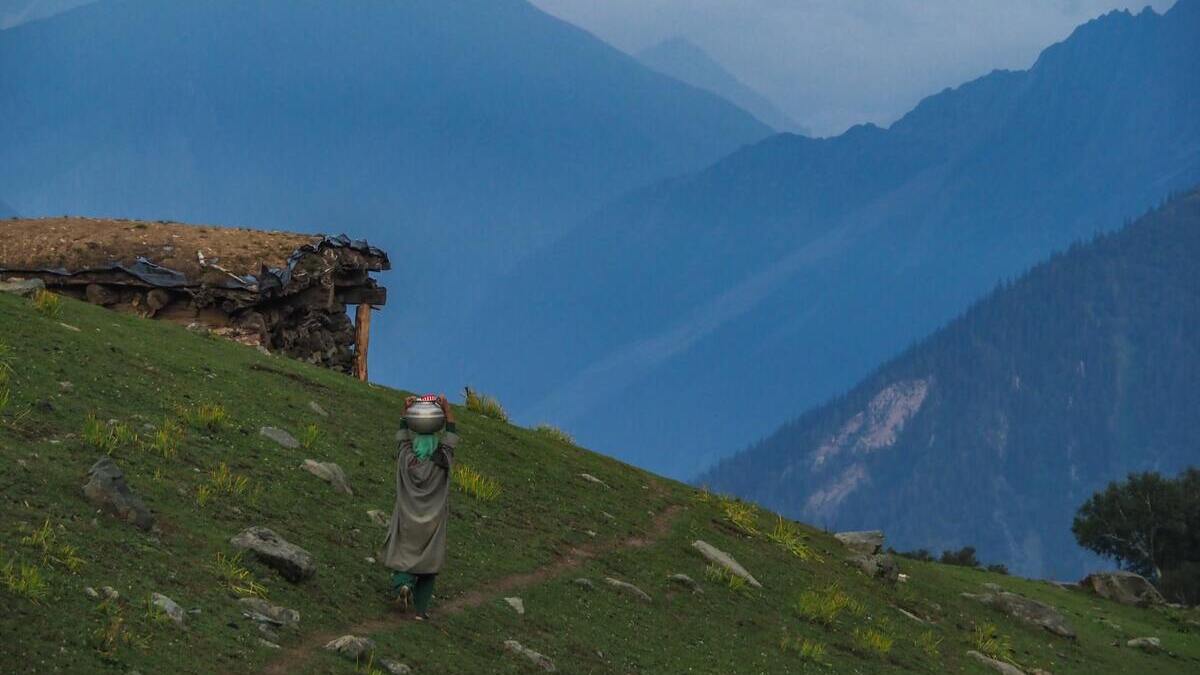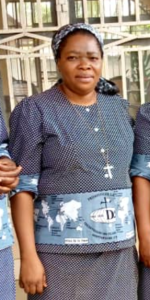
I feel privileged to speak at this major international conference on the theme of “Women and Interfaith Building of a Culture of Encounter”.
I have been asked to present here “an account of a culture of encounter” and my presentation is a sharing of a concrete experience lived in our mission as Daughters of Montfortian Wisdom among women in Kisangani, in the Province of Tshopo in the D.R. Congo. It will be approached according to the following three points: Sources of inspiration for this mission, the journey of these women and the personal convictions that have come from this experience.
As a religious sister living in the very spirit of my Congregation “to be with those whom the world rejects… in order to help them become artisans of their own destiny”, we are continually challenged to reach out to all, without exclusion.
“That all may have life”, “Enlarge the space of your tent”, “Love without borders” are successively the Orientations that our General Chapters of these last twelve years have taken as their theme and which have shaped us, nourished us and oriented our mission. All these Acts of Chapters have awakened our sensitivity to the different situations of misery around us and have given us the impetus to meet the other.

Sister Virginie BITSHANDA BOFONGA
In the difficult social context of our country, and in our environment of Kisangani, the walls of division and distrust are rising more and more between provinces, tribes, religions, ethnic groups and peoples. Among the factors that reinforce the division in DR Congo, there are cultural beliefs, ignorance, unjust systems that are put in place to exploit the weakest, political ideologies… of which the poor are victims and in particular, women. However, generally, the Congolese woman at home is the “pillar” of her family, and in the Church, her contribution to its edification is not negligible. It is enough to see their presence in the different churches to realize this.
However, in a difficult social context like the one in our country, many women find themselves in inhumane situations and fall into the “trap” of acts and/or behaviors that reinforce mistrust, such as violence, theft, begging, prostitution, … and they stay there because they see no other choice or alternative for survival.
“Having been trained at the Institut de Formation Humaine Intégrale de Montréal (IFHIM)/ in Canada, I was initiated, among other things, to help people recognize their values, their capacities, their talents and also to recognize their limits. I learned to help people treat themselves as people and not as objects, to go beyond the walls of indifference to open up to others as they are.”
It is from there that I learned ways to overcome indifference in myself and to really open myself to the other. It is the culture of encounter. I see myself committed with other sisters to promote this “culture of encounter” through a mission with a group of women called “Maman Hekima” which I literally translate as “wise women”.
THE ”HEKIMA MOMS
A group of women who recognize themselves by the name “Mamans Hekima”, initiated in 2013 by myself Sister Virginie BITSHANDA BOFONGA. This group is now a work of the Daughters of Wisdom.
The objective was to try to help these women to take charge of their own lives in a difficult social context in Kisangani at that time (and which is becoming worse today). Touched by the inhuman realities that most of the women in our country live, I wanted to try to find with them, how they could rehabilitate themselves in their dignity as women and mothers at home.
HEKIMA MOMS’ JOURNEY
At the very beginning of this group, we approached and invited a small group of women regardless of tribe or religious denomination. Among them, there were Protestants, Catholics, Muslims, Jehovah’s Witnesses, women from revivalist churches, …
 The times of sharing and reflection allowed them to become aware of each other’s realities: these women were living in mistrust, indifference, fear, prejudices… Little by little, they began to realize their common challenge: the difficult situation they were experiencing. Then, we invited them to share not only their difficulty but also what each one of them is able to do to get out of their situations (abilities, talents, aptitudes, qualities, …). Progressively, they cultivated the interest of mutual knowledge and listening and were able to trust each other, to express the values they discovered in each other. In the respect of the difference they managed to function in sub-groups according to the affinities of the capacities and the activities.
The times of sharing and reflection allowed them to become aware of each other’s realities: these women were living in mistrust, indifference, fear, prejudices… Little by little, they began to realize their common challenge: the difficult situation they were experiencing. Then, we invited them to share not only their difficulty but also what each one of them is able to do to get out of their situations (abilities, talents, aptitudes, qualities, …). Progressively, they cultivated the interest of mutual knowledge and listening and were able to trust each other, to express the values they discovered in each other. In the respect of the difference they managed to function in sub-groups according to the affinities of the capacities and the activities.
Sub-groups were formed around the activities of the fields through the cultivation of cassava, rice, peanuts… Others grouped together for small trade activities. Others made breads, chikwangues, fritters, …
These women have deployed their multiple capacities and skills. They have developed productive meeting initiatives (learning income generating activities from each other, providing financial support and allowing mutual aid and solidarity between them in happy events (wedding celebrations, graduation of children who finish school …) or in unfortunate events such as illness, bereavement …
At the beginning, the Maman Hekima were 12 women. Their small activities and also their closeness beyond their difference began to attract many other women. Today, they are about a hundred women and others are asking to be accompanied in the same way.
From the journey of the Hekima Mothers, we can detect the development of a real “culture of encounter” that has allowed these women to stand up and take their own destiny in hand. The importance given to the mutual respect of differences, the attentive listening of the other, the mutual consideration of the values, talents, capacities, … of each one has progressively favored the mutual trust that has allowed them to “break down” the walls of separation between them in order to build “bridges of peace” that help them to work together and to help each other for their self-help. This clearly shows the development of a “culture of encounter” among these women.
To conclude this sharing, I remain convinced that without a “culture of encounter” our project to help these women would not have borne the fruits we are witnessing. I believe that this path of “a culture of encounter” remains an urgent path that the world needs today.
I am very grateful (so is my Congregation) for having honored us by inviting me to speak at this great International Conference organized by the Dicastery for Interreligious Dialogue. We thank you.
Sœur Virginie BITSHANDA BOFONGA, fdls.